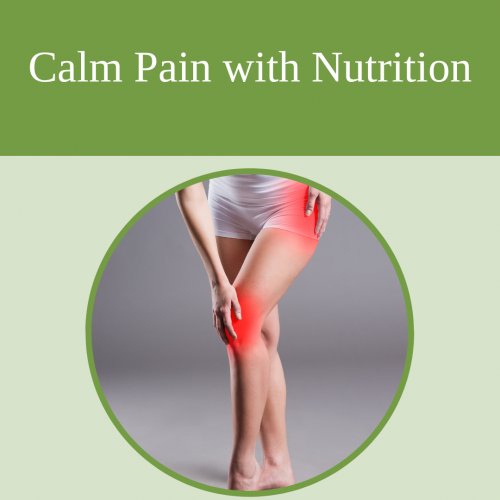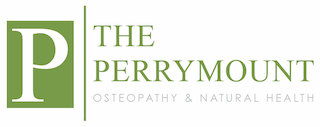Inflammation is a natural bodily response to tissue damage which is triggered by the immune system when provoked by pathogens, abrasions, chemicals, cell damage, extreme temperatures, toxins and poor diet.
Inflammation can occur in two states : chronic or acute. Acute inflammation is an immediate inflammatory response to damaged tissues that is characterised by pain, heat, redness and swelling due to an injury or infection. Chronic inflammation is an unresolved inflammation within the body that is ongoing. It can last for months or even years and this occurs when the body is unable to repair or heal the damage caused by either injury or infection. Chronic inflammation is seen to be associated with many disease states such as diabetes, heart disease, cancer, arthritis and inflammatory bowel disease.
Although inflammation is a natural response when the body is protecting itself, chronic inflammation can be incredibly harmful to our body.
Association with Diet & inflammation
Certain dietary and lifestyle choices such as eating a diet high in sugar, caffeine and too much stress can promote inflammation. Eating inflammatory foods can also alter your gut microbiome, whereby the bacterial species in the microbiome can become unbalanced and negatively affect the immune system.
Continually eating inflammatory foods can cause blood sugar and blood fat levels to increase which triggers chemical reactions within the body, resulting in the inflammatory response.
Top Inflammatory foods
1. Fried foods
The classic fried foods such as fish and chips, chicken nuggets, crisps, churros and tempura battered foods produce a compound call Advanced Glycation End (AGE) that directly stimulate inflammation in the body. AGE’s occur when foods are overcooked at high temperature and if your body is unable to eliminate these AGE’s from your body, they can accumulate and cause damage to bodily cells, ending in inflammation.
2. Sugar and refined carbohydrates
Sugars and simple refined carbohydrates such as white breads, white pasta, white rice, pizza, breakfast cereals and white flour products all rapidly break down into glucose in the bod, turn into sugar and give us that sugar spike. Sweetened drinks like juice, iced tea and fizzy drinks contain a load of sugar as well as other harmful substances and additives. Sugar triggers the liver to produce free fatty acids and when digested by the body, create compounds that activate the body’s inflammatory response.
3. Gluten
Gluten can be an inflammatory trigger for some, especially for those with coeliac disease. This is where the immune system creates a response against the gluten molecules due to perceiving it as a threat, causing immune cells to attack the small intestine, creating inflammation and damage to the intestinal wall lining of the gut.
4. Trans fats
Trans fat is a type of fat that is unsaturated and harmful for the body. When making trans fats such as margarine, hydrogen is added to the vegetable oil , changing the chemical structure making it from a liquid to a solid. This hydrogenation process causes the oil to become damaged. Trans fats are found in products such as vegetable oils like rapeseed oil, cakes, bread, biscuits, crisps, crackers and ice cream.
5. Red and processed meats
Processed meats such as deli meats, hot dogs, sausages, smoked meats, beef jerky and bacon are all high in saturated fats and when consumed in excess have shown to cause inflammation. Cured and proceeded meats are also loaded in salt and preservatives such as nitrates which are a well known carcinogen as well as producing those AGE’S compounds which are harmful and trigger inflammation.
5. Dairy
Cows milk and cows milk products such as cheese, butter and ice cream can cause excess acidity, mucous and inflammation due to added hormones in dairy. Milk can aggregate the immune system and trigger inflammatory conditions such as acne, eczema and arthritis.
Anti-inflammatory foods
‘Eat the Rainbow’. Colourful plant foods in their whole, unprocessed form are anti-inflammatory. When these foods are added into our diet on a daily basis, they can help fight the inflammation thats occurring within the body.
Anti-inflammatory foods contain properties called antioxidants which reduce the amount of harmful free radicals that are circulating around the body. Phyochemicals which are a chemical by-product of plants have many marvellous health benefits.
Top anti-inflammatory foods:
1. Whole grains
Whole grains contain fibre, antioxidants, and those phyochemicals that have been shown to reduce inflammation in the body. This has been specifically demonstrated in type 2 diabetes, metabolic syndrome, and high cholesterol. Most common sources of whole grains include: brown rice, oats, barley, quinoa, buckwheat and farro.
2. Legumes
Legumes are plant proteins that contain numerous compounds, such as polyphenols and saponins, which can lower inflammation in the body. They are also an excellent source of fibre which support gut health, as our gut bugs love a variety of fibre.
Some may say that legumes can actually pro-inflammatory as they contain compounds called lectins. However, to make sure these lectins, do not affect us, make sure all legumes are cooked, as the cooking / heating process deactivates the lectins therefore posing no health concern. Good examples of legumes include: chickpeas, brown and red lentils, pinto beans, black beans, butterbeans and green peas.
3. Rainbow of fruits and vegetables
Consuming a variety of colours of fruits and vegetables provides the body with different antioxidants and phyochemicals, which are super powerhouses for fighting inflammation. For example, blue and purple pigmented foods contains anthocyanins, orange foods produce contains beta carotene, and red foods produce contains lycopene.
Consuming a wide variety of cooked and raw vegetables ensure you reap all the benefits they have to offer. Some of the most potent anti-inflammatory vegetables and fruits include: green leafy vegetables such as kale, spinach, rocket, cruciferous vegetables : eg. broccoli, cabbage, and cauliflower, cherries, tomatoes, berries (blueberries, strawberries, blackberries, raspberries) and pomegranates.
4. Healthy nuts and seeds
Raw nuts and seeds have been shown to lower levels of inflammation due to their unsaturated fat and antioxidant content. Raw nuts are generally preferred due to that vitamin E (a potent antioxidant) decreases during roasting . Try out an easy homemade trail mix for a quick anti-inflammatory snack. The most nutritious nuts and seeds include are almonds, sunflower seeds, pumpkin seeds, brazil nuts and walnuts.
5. Healthy fats
Including unsaturated fats from plants and omega-3 fatty acids sources as the primary fat sources within the diet has been associated with reduced inflammation and reduced risk for heart disease. The following foods are excellent sources of healthy fats: extra virgin olive oil ,avocado, flaxseeds and chia seeds, salmon, mackerel and tuna.
6. Fermented foods
Fermented or foods preserved with the use of live bacteria, are an amazing source of probiotics and antioxidants. These can improve inflammation levels and also immune health by contributing to a healthy balance of our gut bacteria . Great sources of these include sauerkraut, yogurt, kefir, kimchi and kombucha.
7. Herbs and Spices
Spices and herbs have been used for hundreds of years to treat various ailments. Many studies have confirmed the inflammatory fighting effects, in particular curcumin, which is the active compound in turmeric that gives the spice its bright yellow colour, is well known for its anti-inflammatory and anticancer properties. The best anti-inflammatory herbs and spices include : turmeric, black pepper, cinnamon, garlic and ginger.
8. Time for tea
Tea is a well known staple drink around the world and is used for medicinal purposes in many cultures. Tea is boosting in various polyphenols and antioxidants, which have the antioxidant properties, needed to fight inflammation. The high flavonoid content of green tea makes it particularly potent for reducing inflammatory markers. Here are some of the top anti-inflammatory teas include: green tea, matcha green tea, black tea, peppermint herbal tea, ginger and lemon tea.
Blog post | The Perrymount Clinic 01444 410944
Call to book or for more information 01444 410944

Nutritional Approaches to Pain & Inflammation


The Perrymount Clinic
Unit 5
Hurstwood Grange
Hurstwood Lane
Haywards Heath
West Sussex
RH17 7QX
01444 410944
info@theperrymount.com
